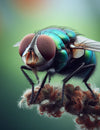Mosquitoes are not just irritating insects; they can also transmit various diseases. Taking prompt action after being bitten by a mosquito is crucial to reduce the risk of contracting these illnesses. In this blog post, we will explore important steps you should take after being bitten by a mosquito and discuss the role of mosquito repellents in protecting yourself. By following these guidelines, you can minimize the chances of falling ill and enjoy a mosquito-free summer.
Identifying the Bite
Mosquito bites can sometimes be confused with other insect bites. Understanding how to identify a mosquito bite is the first step in taking appropriate measures. Mosquito bites typically appear as small, round, red bumps with a tiny puncture mark in the center. They can cause itching, swelling, and redness in the surrounding area.
Clean the Affected Area
After identifying a mosquito bite, it's important to clean the affected area promptly. Gently wash the bite site with mild soap and water to remove any dirt or bacteria that may have been introduced during the bite. Rinse thoroughly and pat dry using a clean towel or tissue to prevent further irritation.
Reduce Itching and Swelling
Mosquito bites are known to cause itching and swelling, which can be uncomfortable. It's crucial to resist the urge to scratch the bite, as it can lead to secondary infections. Instead, use over-the-counter anti-itch creams or lotions containing ingredients like hydrocortisone or calamine to alleviate itching. Natural remedies such as aloe vera gel, tea tree oil, or cold compresses can also provide relief by reducing inflammation.
Prevent Infection
To prevent infection, it's important to keep the bite site clean and dry. After cleaning the area, consider applying an antiseptic ointment to the bite. This can help kill any potential bacteria and reduce the risk of infection. If the bite is in an area prone to friction or contact, covering it with a sterile bandage can provide an additional layer of protection.
Mosquito Repellents
Mosquito repellents play a vital role in preventing mosquito bites and the diseases they may carry. It's important to understand the different types of mosquito repellents available and how to use them effectively. The most common repellents include those containing DEET, picaridin, oil of lemon eucalyptus, and natural alternatives. When applying repellents, ensure you cover exposed skin and follow the instructions for reapplication. In addition to repellents, consider wearing long sleeves, pants, and using mosquito nets for added protection.
Conclusion
Being aware of the necessary steps to take after being bitten by a mosquito is essential for safeguarding your health. Alongside identifying the bite and cleaning the affected area, it's crucial to alleviate itching and prevent infection. Incorporating mosquito repellents into your routine is a highly effective measure in preventing mosquito bites and reducing the risk of contracting diseases. By following these guidelines and taking proactive measures, you can enjoy your summer free from the discomfort and health concerns associated with mosquito bites.
Remember, if you experience severe symptoms or develop a fever after a mosquito bite, it's essential to seek medical attention promptly. Stay informed, stay protected, and make your summer mosquito-free with these simple yet crucial precautions.



